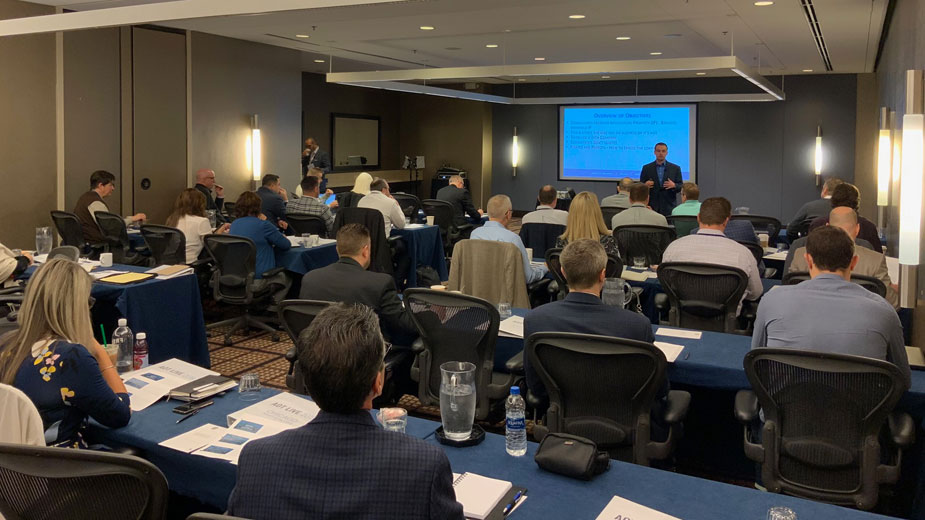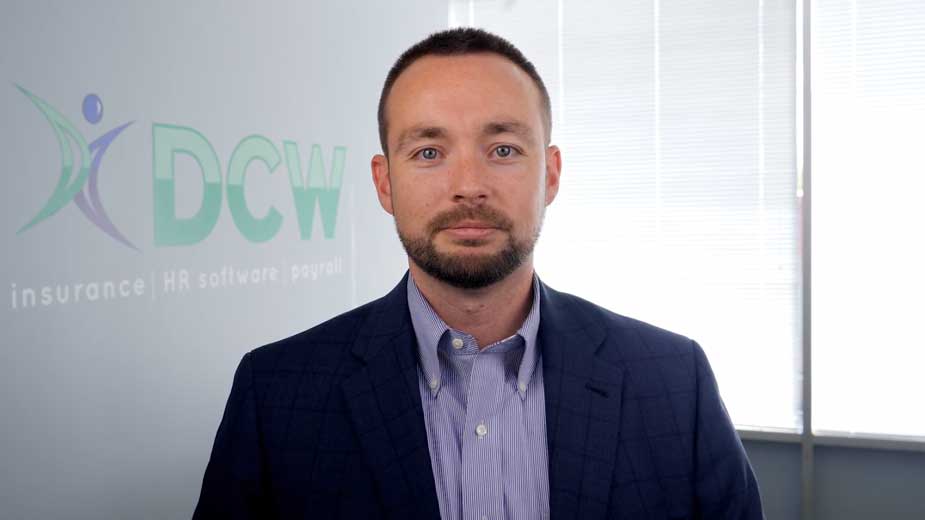How Employers Buy Benefits Is Broken
If you’ve followed the five case studies we’ve shared in The New Benefits Blueprint, you know that we showcased our clients who are offering higher quality benefits to their employees, while significantly lowering their company’s health-care spending. In order to deliver long-term cost containment, we are constantly creating innovative strategies in response to the ever-changing marketplace and you should be working with an adviser who is doing the same.
In March, DCW Group partnered with Axial Benefits Group, based in Boston, to create, design and deliver AOT Live, a training program to teach other advisers how to deliver the same high-performing benefit plans that we produce for our clients.
Our inaugural event was held in Chicago and attended by 40 advisers with offices from New Hampshire to California. These advisers are just as frustrated with health care and employee benefits as their employer clients, but are committed enough to invest their time and resources to do something about it. We spent three intense days training and educating them on the cost-saving methods we use at our firm.
While the successful strategies we implement with our clients to construct high-performing benefit plans are important, perhaps of equal importance is how we came to work with those clients in the first place. I’m often asked, “How do we know if we’re working with the right insurance adviser?”If any adviser who wants to earn your business suggests that they quote your insurance at renewal, they are the wrong adviser. Advisers have conditioned employers for years that the only way to choose an adviser is to allow them to quote against the current benefits.
Here’s the dirty little secret: If your current adviser, four other prospective advisers and your human resource manager all went to the marketplace with the same data, they would come back with the exact same proposals!
If you’ve ever conducted the above process at your renewal, you know this to be the case and that the process rapidly turns into a strange beauty pageant. Each contestant parades through your office to tell you they’ve been in business since 1804, they provide exceptional customer service and they have very strong carrier relationships. Some sweeten the deal by offering enticements such as free COBRA administration, benefits platforms, enrollment kits, etc.
There is no value to receiving quotes from multiple advisers. In fact, it works against you as the employer. The moment your current adviser knows that other advisers could potentially be quoting against them, they bottleneck all of the information coming from your insurance carriers to protect their own self-interest.
If you’re lucky, the other prospective advisers will spend half of their time focusing on what’s best for you and your employees but realistically most of their time will be spent trying to find who else is quoting the business and how they can convince you to pick them instead.
Insurance carriers who receive five requests for proposal from multiple advisers on a single employer know that there is no unified strategy being executed by the employer. It signals that the decision on the adviser hasn’t even been made and therefore no strategy is in place.
You walk away frustrated and by the time you overcome that frustration it’s nine months down the road, and all of the same advisers are calling you to repeat the process.
To be clear, this isn’t your fault as an employer. Advisers have conditioned most employers to conduct this type of buying process.
Because we know it does not benefit our clients, DCW Group hasn’t issued a competitive quote for a nonclient since 2016. Instead, we spend a significant amount of time educating employers on why this type of buying style hurts them.
So how should you go about finding the right adviser?
Conduct interviews with the firms you are considering and ask them what specific tactics they plan to use to improve your benefits and reduce your costs. Ask to speak to their clients who have experienced the value they create and make a decision on one firm to represent your company in the marketplace.
The ideal time for this evaluation is not leading up to your renewal date where the pressure of a deadline affords the advisers and insurers more leverage than you as the buyer. These interviews should be conducted outside of the renewal and center exclusively on the value the adviser can create for you and your employees, backed up by other employers who have already experienced the results.
Shifting the conversation away from the quoting auction and beauty pageant to a focus on value alone will immediately eliminate many of the advisers who would have otherwise clouded the process leading up to your renewal.
Speaking to other employers who have experienced the results will allow you to know that you’re not a test case.
This will put you on the path to finding a strategic partner for the long term rather than an adviser that will spend the next year chasing other prospects and wasting time running meaningless quotes for nonclients rather than focusing on you and your employees.
Pictured: Bob Gearhart Jr. shares his insights at a training program in March in Chicago.
Copyright 2024 The Business Journal, Youngstown, Ohio.



